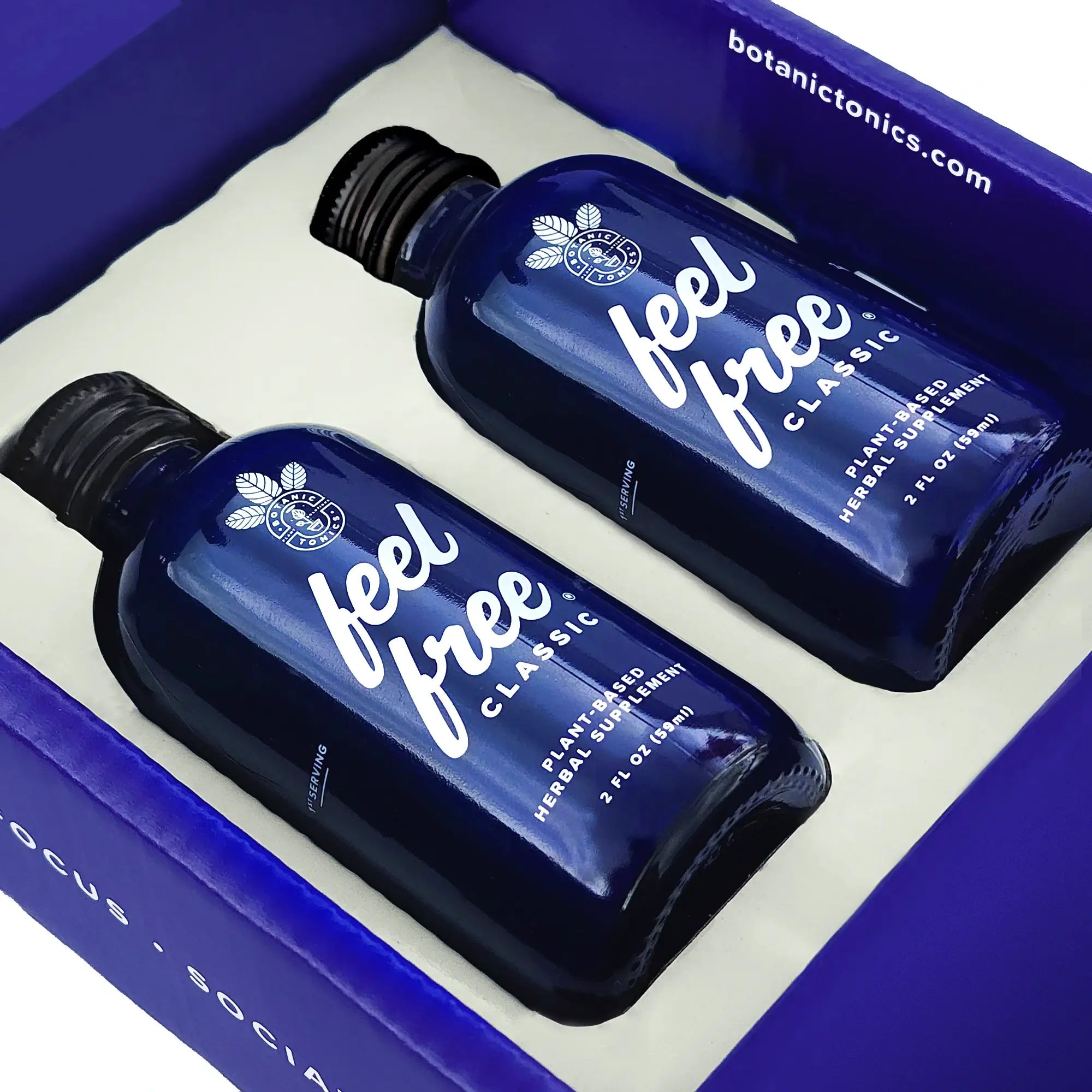Kava Kava vs. Valerian: Detailed Guide
When you’re feeling stressed, anxious, or sleepless, your first instinct may be to visit the pharmacy. There, you’ll find countless pills, tinctures, and patches designed to help relieve your symptoms.
These solutions are convenient, and many of them will help you feel better. But most of them also contain synthetic ingredients. What if you want something natural instead?
In that case, you might turn to herbal remedies. Two such remedies that may be used to help with occasional anxiety and insomnia are kava kava and valerian.
If you’re not familiar with these plants (or even if you are), you may be wondering about the differences between the two. Well, you’re in the right place. This kava kava vs. valerian guide will help you understand the history, uses, and benefits of each one.
Understanding Kava Kava: Uses and Benefits
Kava kava (Piper methysticum) has a long history as an herbal supplement. Also called kava for short, the green leafy plant was originally grown in the islands of the South Pacific, including Vanuatu and Fiji.
For many years, the root of the kava plant has been ground into a paste. That paste is then added to a liquid to make a kava beverage, which some Pacific Islanders drink as part of rituals and ceremonies.[1]
In these contexts, kava is used for its range of natural properties. As frequent users have found, kava kava benefits contribute to:[2]
- Relaxation
- Occasional reduction of stress and anxiety
- Increased sociability
- Mood elevation
The natural chemicals that are reportedly behind these effects are called kavalactones.[2] Kavalactones enter your body when you consume kava and can provide relief for minor symptoms.
Today, kava extract is an important ingredient in some natural dietary supplements, including the feel free kava tonic and capsules from Botanic Tonics.
Understanding Valerian: Uses and Benefits
Valerian (Valeriana officinalis) is another herb people have used in alternative medicine for hundreds of years. A tall, flowering plant, valerian is native to Europe and Asia but now grows wild throughout the world.[3]
As with kava kava, the root of the valerian plant is used in herbal remedies, mostly due to its sedative effects. Users either press the root into a fresh juice or freeze-dry it to create a powder that can be added to supplements. When taken in this way, valerian root has been reported to help with.[4]
- Sleep disorders
- Insomnia
- Stress
- Anxiety
- Restlessness
While scientists are unsure of the mechanisms behind the effects of valerian root, the theory is that it increases the amount of gamma-aminobutyric acid (GABA) in the brain.[5] GABA is a nerve cell regulator that’s known to reduce levels of anxiety, making it especially valuable for those struggling with nervous disorders.
Comparing Kava Kava vs. Valerian
As you can see, kava kava and valerian have much in common. Both come from the roots of plants. Both have been used as herbal supplements for hundreds (or even thousands) of years, and both are still in use today by people who seek alternative medicine solutions to several health concerns.
With that said, kava and valerian are two different plants. So, naturally, there are some differences. To that end, let’s take a closer look and directly compare these two natural remedies.
Effectiveness for Sleep
Sleep is one of the most critical aspects of your health. When you’re not sleeping well—either because you’re having trouble falling asleep or because your sleep quality is suffering—you won’t feel your best. As such, it’s worth taking steps to have a healthy, restful sleep.
Luckily, kava and valerian have been used for centuries as sleep aids.
Kava, when taken on its own, may help promote healthy sleep. Although few rigorous studies have been done to showcase kava’s effects on insomnia and other sleep disorders, users of the root have reported feeling more relaxed and, on occasion, less stressed. This relaxed feeling can help you fall asleep faster and sleep better overall.
Valerian may also help with sleep. Although the Sleep Foundation does not recommend it as a long-term treatment for insomnia, it may be used infrequently to help you:[6]
- Fall asleep faster
- Improve sleep quality
- Spend more time in deep sleep
It’s hard to say if one option is better for sleep. Both appear to have mild sedative effects that help users fall asleep, so you could experiment with either one when you’re feeling particularly sleepless.
Effectiveness for Anxiety Relief
Anxiety symptoms can be another debilitating issue. When you’re feeling anxious, it may be difficult to carry out your responsibilities and do the things you enjoy, including spending time with friends and family.
Once again, both kava kava and valerian may be able to help.
People who take kava as a supplement have reported occasional relief from stress and anxiety symptoms.[1] In fact, research has found that taking kava regularly by mouth for at least five weeks can reduce feelings of anxiety, possibly working as well as certain prescription medications.[2] However, those with generalized anxiety disorder (GAD) may not experience relief from kava.
As for valerian, the reviews are mixed. While some people take valerian root to combat anxious feelings, the scientific community is unsure of the exact effects of valerian on symptoms of anxiety.[7]
In this head-to-head comparison, we have to give the edge to kava, though both remedies would benefit from more research.
Potential Side Effects
Although kava kava and valerian are herbal remedies that have been used for years, they may come with some mild side effects. Understanding these potential side effects is an important part of deciding if and when to use natural dietary supplements.
Kava has been used traditionally for generations, but some health professionals believe that consuming the root frequently in large doses may impact the liver.8 However, more research is needed to confirm these effects. For now, if you choose to take kava supplements, it’s worth keeping your dosage below the recommended amount; talk to a healthcare professional if you have concerns.
Valerian, on the other hand, is generally known to be safe for consumption. However, some side effects are possible, including:[4]
- Drowsiness
- Dizziness
- Upset stomach
- Headaches
Some people also report that valerian has the opposite effect on them, increasing feelings of anxiety and restlessness.[5]
As with any new supplement, talk to a healthcare professional before taking it and discontinue use if you experience significant side effects.
Because both kava and valerian root have some potential side effects, this particular comparison ends in a tie.
Which One Should You Choose?
Ultimately, kava and valerian are similar in some ways. Both may help with feelings of sleeplessness and anxiety, and both may come with some minor side effects.
How do you know which one is right for you?
Well, it depends on what your most pressing concern is. If you’re looking for help with sleep, kava kava and valerian have both been shown to be relatively effective. A 2001 study on stress-induced insomnia found no significant difference between the effects of either supplement.[9]
If you need some occasional anxiety relief, kava may be the better choice for you. Kava is routinely used as a relaxation agent, while valerian root is more likely to be used for insomnia symptoms only.
One final note: If you have any liver-related health concerns, you may want to use valerian instead of kava—at least until you get the go-ahead from your healthcare provider. Although the exact effects of kava kava on the liver are unknown, it’s always better to be safe.
How to Safely Use Kava Kava and Valerian
Of course, safety is the most vital part of taking anything for symptom relief—whether it’s natural or synthetic. If you’re considering trying kava or valerian, follow these tips for proper usage.
- Talk to a doctor – Kava and valerian may be natural, but they’re still medicine. As such, it’s worth talking to your doctor about using these remedies safely. Everyone has different health needs, so having a personalized opinion is always smart.
- Start small – No matter how tired you are, don’t take a large dose the first time you use either supplement. Instead, try a little bit and see how you feel. If you don’t have any adverse reactions, you may want to increase the dosage.
- Take notes – Before, during, and after your experiences with kava or valerian, check in with yourself. Note how you’re feeling, and write it down. That way, you can track the effects of these supplements and refer back to them. Notes will be especially helpful when you’re talking to a medical professional.
The Best Way to Compare? Try for Yourself
If you’re interested in kava kava and valerian, reading about them will only take you so far. Once you’ve been cleared by a healthcare professional, the best way to experience these supplements is to try them. That’s the only way to know if they’ll work for you.
At Botanic Tonics, we offer kava as part of a blend of natural supplements in our kava capsules and tonics. While these options aren’t designed to help you sleep, they may help occasionally reduce stress and anxiety.
Try them today, and enjoy the feelings that those in the know have enjoyed for centuries.
Sources:
- Botanic Tonics. What is Kava? https://botanictonics.com/pages/kava-101
- WebMd. Kava - Uses, Side Effects, and More. https://www.webmd.com/vitamins/ai/ingredientmono-872/kava
- Healthline. How Valerian Root Helps You Relax and Sleep Better. https://www.healthline.com/nutrition/valerian-root
- WebMD. Valerian - Uses, Side Effects, and More. https://www.webmd.com/vitamins/ai/ingredientmono-870/valerian
- Mount Sinai. Valerian. https://www.mountsinai.org/health-library/herb/valerian
- Sleep Foundation. Valerian Root for Sleep. https://www.sleepfoundation.org/sleep-aids/valerian-root
- WebMD. Valerian. https://www.webmd.com/a-to-z-guides/supplement-guide-valerian
- Mount Sinai. Kava kava. https://www.mountsinai.org/health-library/herb/kava-kava
- 9. National Center for Biotechnology Information. Kava and valerian in the treatment of stress-induced insomnia. https://pubmed.ncbi.nlm.nih.gov/11536390/















